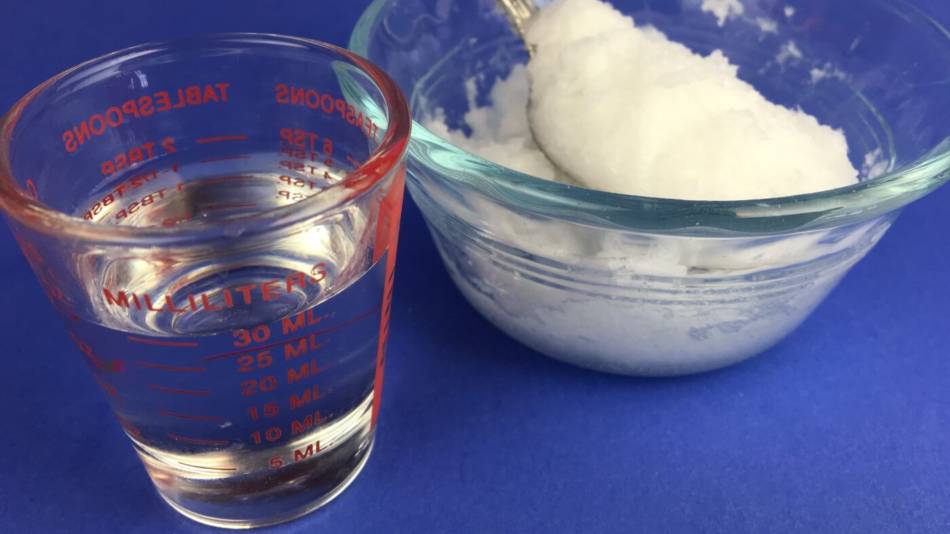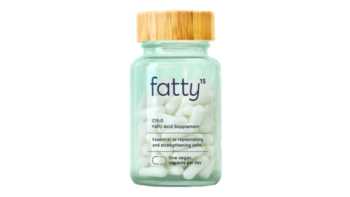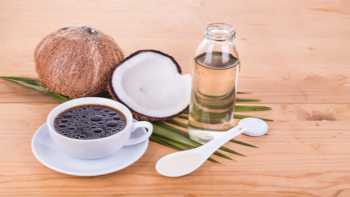Products tested in 2019
+— 43 sources
In addition the results of its expert testing, ConsumerLab uses only high-quality, evidence based, information sources. These sources include peer-reviewed studies and information from agencies such as the FDA and USDA, and the National Academy of Medicine. On evolving topics, studies from pre-print journals may be sourced. All of our content is reviewed by medical doctors and doctoral-level experts in pharmacology, toxicology, and chemistry. We continually update and medically review our information to keep our content trustworthy, accurate, and reliable. The following sources are referenced in this article:
- Abe, Am J Clin Nutr 2019
- Agero, Dermatitis 2004
- Alves, Appl Physiol Nutr Metab 2015
- Alves, Basic Clin Pharmacol Toxicol 2017
- Azzam, Case Rep Neurol Med 2013
- Borba, Nutrients 2019
- Clegg, Eur J Clin Nutr 2017
- Dhanasekara, Nutr Metab Cardiovasc Dis 2022
- Evangelista, Int J Dermatol 2014
- Fernando, Br J Nutr 2015
- Fernando, J Alzheimers Dis 2023
- Fortier, Alzheimers Dement 2019
- Fortier, Alzheimers Dement 2020
- Gause, Int J Cosmet Sci 2016
- Henderson, Nutr Metab (Lond
- Jeukendrup, Am J Clin Nutr 1998
- Juby, TRCI 2022
- Junior, Nutrients 2021
- Kaur, Pharmacognosy Res 2010
- Kochikuzhyil, Indian J Pharmacol 2010
- Murata, Am J Physiol Endocrinol Metab 2019
- Murray, Nutr Metab 2011
- Nagilla, J Clin Diagn Res 2017
- Nakatsuji, J Invest Dermatol 2009
- Nosaka, J Atheroscler Thromb 2003
- Papavassilis, Crit Care Med 1999
- Rele, J Cosmet Sci 1999
- Rele, J Cosmet Sci 2003
- Roy, medRxiv 2021 — preprint
- Sezgin, Complement Ther Med 2019
- Van, J Appl Physiol (1985
- Verallo-Rowell, Dermatitis 2008
- Vogel, Food Funct 2020
- Foster Nutr Bull 2009
- Katragadda, Food Chem 2010
- Abbasi, JAMA 2020
- Anagnostou, Children (Basel
- Chinwong, Evid Based Complement Alternat Med 2017
- Gomez, Allergol Immunopathol (Madr
- Liu, Biomed J 2013
- Maiti, J Am Nutr Assoc 2023
- Neelakantan, Circulation 2020
- Sacks, Circulation 2017
Summary
-
What is coconut oil and MCT oil?
Medium chain triglycerides (MCTs) made from caprylic, capric, and, predominantly, lauric acids, make up more than half of virgin ("cold pressed") coconut oil, which also contains long chain triglycerides that cause it to be semi-solid at room temperature. The long chain triglycerides, as well as much of the lauric acid (which can act like a long chain triglyceride), can be removed to create refined coconut oil which is liquid and comprised mostly (about 85%) of caprylic and capric acids, or further refined to just MCT oil (about 95% or more of caprylic and/or capric acids). The oils can also be mixed with fibrous ingredients and sold as powdered oils. (See What It Is).
-
How are coconut oil and MCT oil used?
Both virgin coconut oil and refined coconut oil can be used in foods and cooking or applied to the skin and hair. Refined coconut oil and MCT products have been consumed as part of diets because they are used mainly for energy rather than fat storage, and preliminary research suggests possible uses in treating Alzheimer's disease, epilepsy, fat-malabsorption, and other conditions, although benefits have yet to be proven. See What It Does.
-
What did CL's tests find about coconut oil and MCT oil?
All of the products passed ConsumerLab's tests, but some provided much better value than others. In fact, the cost to get 8 grams of MCTs ranged from just 7 cents to $1.68 — meaning you could pay more than 20 times as much to get the same amount of MCTs from one product than from another. (See What CL Found, How Products Were Evaluated, and use the Results table to compare amounts and costs of MCTs in products).
-
Best coconut oil and MCT oil?
ConsumerLab selected Top Picks for virgin coconut oils, refined coconut oils, and MCT oils based on quality and cost.
-
What to look for in coconut oil?
With virgin coconut oils, we found that it's not worth paying much, if anything, more for "extra" virgin. For higher concentrations of MCTs, make sure the product is a liquid (otherwise it's not really refined) and lists amounts of "Total MCTs" which should be at least 85% of the serving of oil, e.g., a 14-gram serving of oil should provide at least 12 grams (12,000 mg) of MCTs. If you want mostly MCTs made of caprylic and/or capric acids -- the shorter MCTs, make sure the amounts of these are listed and comprise 95% or more of the oil. (See ConsumerTips™).
-
How much coconut oil should I take and when?
Serving sizes have ranged from 1 teaspoon to several tablespoons daily, depending on the use. See the What It Does section for the dosage for specific uses.
-
Side effects of coconut and MCT oil:
MCTs are saturated fats, so most of the fat in coconut oil is saturated fat. Although some evidence suggests that MCTs are less likely to be stored as fat than oils made from longer chain fatty acids, they may cause an increase in "bad" cholesterol. For details, see Concerns and Cautions.
You must
be a member to get the full test results, along with ConsumerLab's recommendations. You'll get results for 13 products -- eleven selected by ConsumerLab and two others that passed the same testing through our voluntary Quality Certification Program.
In this comprehensive review, you'll discover:

 Which oils (including those sold in softgel or powder forms) supplements passed or failed our tests
Which oils (including those sold in softgel or powder forms) supplements passed or failed our tests ConsumerLab's Top Picks
ConsumerLab's Top Picks The evidence for or against coconut and MCT oil for weight loss and dieting (including the ketogenic diet), Alzheimer's disease, epilepsy, and skin and hair care
The evidence for or against coconut and MCT oil for weight loss and dieting (including the ketogenic diet), Alzheimer's disease, epilepsy, and skin and hair care
 What to look for on coconut and MCT oil labels
What to look for on coconut and MCT oil labels Coconut and MCT oil dosage for specific uses
Coconut and MCT oil dosage for specific uses Concerns, cautions, and potential side effects with coconut and MCT oils, including concerns about heart health
Concerns, cautions, and potential side effects with coconut and MCT oils, including concerns about heart health
As a ConsumerLab.com member, you may print a copy of this report for your personal use.
You can access a special print version by clicking the "Print" icon in the upper right corner of this report.
You can then use your web browser's print functions to print the whole report or just selected pages.
You may also email or post a link to this report using the web address above.
Non-members using the link will see a free summary and can join to view the full report.
Other means of copying or distributing this report, in part or full, are not permitted.
If you are sight-impaired and your computer is having trouble converting the text in this report to speech,
contact us for assistance at Membership@ConsumerLab.com or by
phone at 914-722-9149.


























